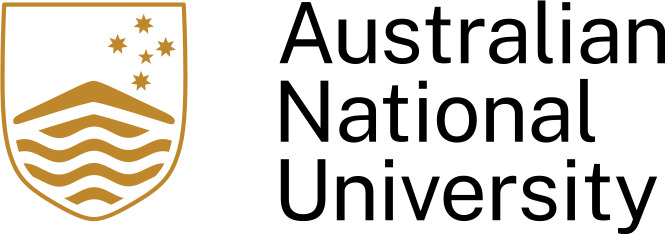Engineering & Computer Science: Study Abroad Opportunities for Indian Students
Are you an aspiring engineer or computer science enthusiast from India dreaming of global exposure? Studying Engineering & Computer Science abroad can open doors to world-class education, cutting-edge research, and lucrative career paths. With India's booming tech sector, pursuing higher studies in these fields internationally equips you with skills that are in high demand worldwide. From innovative labs in the US to sustainable engineering programs in Europe, this guide explores everything you need to know about studying abroad in Engineering & Computer Science.
Why Choose Engineering & Computer Science Abroad?
India produces millions of engineering graduates annually, but studying abroad offers unparalleled advantages. You'll gain exposure to advanced technologies, diverse cultures, and international networks that enhance your resume. Key benefits include:
- World-Class Curriculum: Programs emphasize practical learning, internships, and industry collaborations, unlike the theoretical focus in many Indian institutions.
- Research Opportunities: Access state-of-the-art facilities for projects in AI, robotics, and renewable energy.
- Global Recognition: Degrees from top universities are highly valued by Indian recruiters like Infosys, TCS, and Google India.
- Cultural and Professional Growth: Living abroad builds adaptability, communication skills, and a global mindset—essential for multinational careers.
- Higher Salaries: Graduates often earn 20-50% more than domestic peers, with starting packages exceeding ₹20 lakhs in India post-return.
For Indian students, the post-study work visa options in countries like Canada and Australia make it easier to gain international experience before returning home.
Popular Destinations for Engineering & Computer Science
Choosing the right country is crucial. Here's a breakdown of top destinations tailored for Indian students, considering factors like affordability, visa ease, and Indian diaspora support.
| Country | Top Universities | Average Tuition (INR per year) | Key Attractions for Indians | Post-Study Work Visa |
|---|---|---|---|---|
| USA | MIT, Stanford, Carnegie Mellon | 25-40 lakhs | Strong alumni networks in Silicon Valley; scholarships like Fulbright for Indians | OPT up to 3 years for STEM |
| Canada | University of Toronto, UBC, Waterloo | 15-25 lakhs | Affordable living; large Indian community; PR pathways | PGWP up to 3 years |
| UK | Imperial College, Oxford, Cambridge | 20-30 lakhs | Short 1-year master's; Chevening scholarships | Graduate Route: 2 years |
| Australia | University of Melbourne, Sydney, UNSW | 18-28 lakhs | High employability; Indian food availability | Temporary Graduate Visa: 2-4 years |
| Germany | Technical University of Munich, RWTH Aachen | Free or low (2-5 lakhs) | Tuition-free public unis; English-taught programs | 18 months job search visa |
Germany stands out for budget-conscious Indian students due to low or no tuition fees, while the US offers prestige but requires strong financial planning.
Top Courses and Specializations
Engineering & Computer Science encompass diverse fields. Most programs offer bachelor's (BEng/BSc) and master's (MEng/MSc) degrees, lasting 3-4 years for undergrad and 1-2 years for postgrad. Popular specializations include:
- Computer Science: Focus on algorithms, software engineering, and data structures. Specialize in AI, Machine Learning, Cybersecurity, or Software Development.
- Electrical & Electronics Engineering: Covers circuits, semiconductors, and telecommunications. Ideal for those interested in IoT and renewable energy.
- Mechanical Engineering: Involves design, manufacturing, and robotics. Programs often include hands-on projects with CAD software.
- Civil Engineering: Emphasizes sustainable infrastructure, urban planning, and environmental engineering—relevant for India's growing smart cities.
- Biomedical Engineering: Blends engineering with medicine; booming in healthcare tech.
- Aerospace Engineering: For aviation enthusiasts, with simulations and flight testing.
Pro Tip: Indian students with a BTech from IITs or NITs can opt for MS programs abroad to specialize further, often with research theses.
Eligibility Criteria and Admission Requirements
Admission is competitive, but achievable with preparation. Standard requirements for Indian students:
- Academic Qualifications: For undergrad: 10+2 with 75-85% in PCM (Physics, Chemistry, Math). For master's: Bachelor's degree with 60-70% or equivalent GPA (3.0/4.0).
- Standardized Tests:
- SAT/ACT for undergrad (USA/Australia).
- GRE for master's (most countries, optional in some like UK).
- IELTS (6.5+) or TOEFL (90+) for English proficiency—crucial as English is the medium in 90% of programs.
- Documents: Transcripts, SOP (Statement of Purpose) explaining your goals, LORs (2-3 from professors), resume, and portfolio for creative engineering fields.
- Visa Requirements: Proof of funds (e.g., ₹15-20 lakhs for USA), health insurance, and interview for countries like UK/Canada.
Deadlines vary: Fall intake (Sept) applications due by Dec-Jan; Spring (Jan) by Aug-Sept. Start preparing 12-18 months in advance.
Scholarships and Financial Aid
Studying abroad can be expensive, but scholarships ease the burden for meritorious Indian students. Explore these options:
- University-Specific: MIT's need-based aid; University of Toronto's Lester B. Pearson Scholarship (full tuition for undergrad).
- Government Scholarships: India's JN Nehru Memorial Fund; UK's Chevening (full funding for master's); Australia's Endeavour Awards.
- International: Fulbright-Nehru for USA (covers tuition, travel); DAAD for Germany (monthly stipend €934).
- Private/Indian Org: Inlaks Shivdasani Foundation (up to $100,000); KC Mahindra Scholarships (₹10 lakhs).
Average costs: Tuition + living = ₹20-50 lakhs/year. Part-time jobs (20 hours/week) can cover living expenses (₹8-15 lakhs/year). Loans from Indian banks like SBI offer up to ₹1.5 crore at 10-12% interest.
Career Prospects and Job Opportunities
A degree in Engineering & Computer Science abroad translates to excellent employability. In India, returnees often join FAANG companies or startups in Bengaluru/Hyderabad. Globally:
- Roles: Software Engineer (₹15-30 lakhs starting in India), Data Scientist, Network Engineer, Project Manager.
- Industries: Tech (Google, Microsoft), Automotive (Tesla), Healthcare (Medtronic), Consulting (McKinsey).
- Salary Insights: USA: $80,000-$120,000; Canada: CAD 70,000+; India post-abroad: 20-40% premium over local grads.
Many countries offer pathways to permanent residency, allowing you to work 2-5 years post-graduation. For Indian students, this experience boosts profiles for H-1B visas or Indian MNCs.
Application Process: Step-by-Step Guide
Navigating applications can be overwhelming, but follow these steps:
- Research Programs: Use sites like QS Rankings or Studyportals to shortlist 5-10 universities.
- Prepare Tests: Book IELTS/GRE early; aim for top scores.
- Gather Documents: Get transcripts attested by AIU (Association of Indian Universities).
- Apply Online: Via university portals or Common App (USA); pay application fees (₹5,000-15,000).
- Secure Funding: Apply for scholarships simultaneously.
- Visa Application: After offer letter, submit to embassy with financial proofs.
- Pre-Departure: Arrange accommodation, attend orientation, and join Indian student groups for support.
Common Challenges for Indians: Cultural shock and homesickness—combat with apps like WhatsApp and local Indian associations.
Success Stories and Tips
Thousands of Indian students thrive abroad. Sundar Pichai (Google CEO) studied at Stanford, while Satya Nadella (Microsoft) at the University of Wisconsin. Tips for success:
- Build a strong LinkedIn profile early.
- Participate in hackathons and internships during studies.
- Learn soft skills like teamwork through group projects.
- Stay connected with Indian festivals via student clubs.
Embark on this journey to transform your career. With dedication, studying Engineering & Computer Science abroad can be your gateway to innovation and success.


